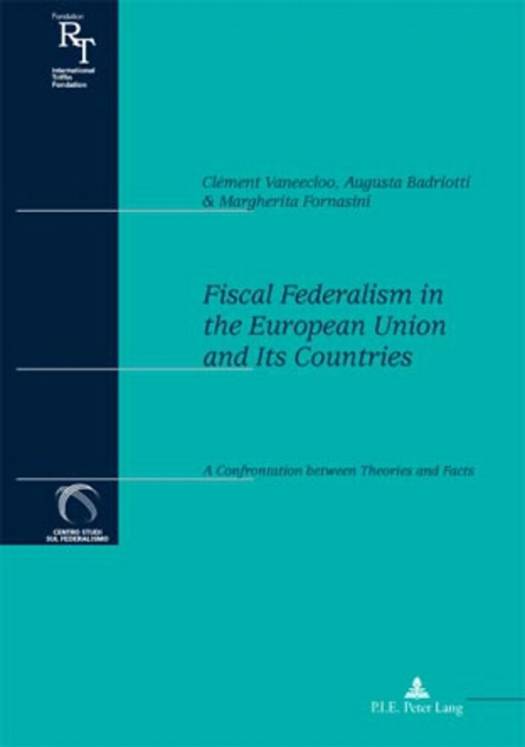
- Afhalen na 1 uur in een winkel met voorraad
- Gratis thuislevering in België vanaf € 30
- Ruim aanbod met 7 miljoen producten
- Afhalen na 1 uur in een winkel met voorraad
- Gratis thuislevering in België vanaf € 30
- Ruim aanbod met 7 miljoen producten
Zoeken
Fiscal Federalism in the European Union and Its Countries
A Confrontation Between Theories and Facts
Clément Vaneecloo, Augusta Badriotti, Margherita Fornasini
€ 89,95
+ 179 punten
Omschrijving
The book tackles a key issue for the European Union: Fiscal Federalism. It evaluates the applicability of this theoretical perspective for the EU. Conversely, it pinpoints ways in which the diversity of existing fiscal settings and organisations, both at national and European levels, can throw light on the theory.
The study analyses two of the most important European policies: Cohesion Policy and the Stability and Growth Pact. It compares the episode of German Unification to the 2004 European Enlargement. It pioneers a cross-country analysis of the various national fiscal settings. Finally, it highlights the close links between the dynamics of decision-making related to the main budgetary choices and the integration process.
The questions raised are crucial in the current context of economic and institutional uncertainty: How should we apprehend the Cohesion Policy, the main expression of European solidarity? How can the coordination of national fiscal policies be improved? How are European countries and their regions organised in fiscal and budgetary terms? What lessons can the EU draw from its own fiscal past and from that of its Member States?
Over and above the originality of the answers provided by the authors, the book suggests that it would be difficult to take the integration process further without first clarifying what Europe can, should or wants to do.
The study analyses two of the most important European policies: Cohesion Policy and the Stability and Growth Pact. It compares the episode of German Unification to the 2004 European Enlargement. It pioneers a cross-country analysis of the various national fiscal settings. Finally, it highlights the close links between the dynamics of decision-making related to the main budgetary choices and the integration process.
The questions raised are crucial in the current context of economic and institutional uncertainty: How should we apprehend the Cohesion Policy, the main expression of European solidarity? How can the coordination of national fiscal policies be improved? How are European countries and their regions organised in fiscal and budgetary terms? What lessons can the EU draw from its own fiscal past and from that of its Member States?
Over and above the originality of the answers provided by the authors, the book suggests that it would be difficult to take the integration process further without first clarifying what Europe can, should or wants to do.
Specificaties
Betrokkenen
- Auteur(s):
- Uitgeverij:
Inhoud
- Aantal bladzijden:
- 242
- Taal:
- Engels
- Reeks:
- Reeksnummer:
- nr. 2
Eigenschappen
- Productcode (EAN):
- 9789052010441
- Verschijningsdatum:
- 19/12/2006
- Uitvoering:
- Paperback
- Formaat:
- Trade paperback (VS)
- Afmetingen:
- 150 mm x 220 mm
- Gewicht:
- 329 g

Alleen bij Standaard Boekhandel
+ 179 punten op je klantenkaart van Standaard Boekhandel
Beoordelingen
We publiceren alleen reviews die voldoen aan de voorwaarden voor reviews. Bekijk onze voorwaarden voor reviews.








